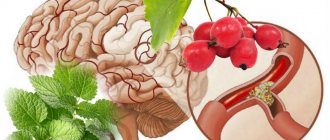Why does anger arise? Ten main reasons
Late autumn is a difficult period. The lack of sunlight takes its toll: it’s hard both physically—somehow fatigue sets in quickly, and emotionally. It aggravates the pessimistic mood and depressed state of others: negativity is contagious, and irritated, aggressive people easily create problems for others.
I remember both my own shock and the shock of my random fellow travelers when, on a weekday morning on a subway train, an ordinary woman suddenly hit the passenger in front: she, you see, was getting out of the car too slowly. Another time, all the passengers witnessed an equally ugly scene: an elderly man was yelling at a woman he didn’t know, citing some of his services to the fatherland and for some reason stubbornly sending her to church to atone for her sins.
Hysterics regularly occur in public reception areas of various institutions and organizations, surveillance cameras record beatings in stores, clashes occur between car owners - outbreaks of aggression have become commonplace. Including on the Internet: being inaccessible to each other, users willingly pour accumulated negativity onto the Internet, without much ceremony in their choice of expressions. Why is this happening? What allows irritation to accumulate to such an extent that any trifle serves as a catalyst for a monstrous release of aggression?
1. Cultural degradation.
A person cannot remain unchanged: either progress or regression. When there is no desire for development, degradation sets in, the consequence of which is an unwillingness to contain the accumulated negativity, especially when one also doesn’t care about public opinion.
2. Poor health.
Most people neglect their own health, medical examination is no longer mandatory, and some people cannot afford quality medical services. Poor health means a depressed psyche.
3. Financial instability.
There is work, but who can say with confidence that the same income will remain the same next month? Against the backdrop of constant rising prices and the availability of loans, the lack of financial stability does not add to optimism.
4. Feeling homeless.
The state does not provide housing, and real estate prices are prohibitive. Both mortgages and rented housing are financial bondage, creating uncertainty about the future.
5. Feeling of social uselessness.
Those who cannot adequately assess their abilities and capabilities find it difficult to find employment for themselves. It happens that someone’s own ambitions are off the charts, making it difficult to find a suitable type of activity, while others simply do not like working for someone else’s personal pocket - this is due to the specificity of the community mentality and the desire to feel like a significant part of a huge, strong state. In such cases, even a good salary does not compensate for moral dissatisfaction - a person quickly gets used to his income.
6. Fear of being unemployed.
This is the other extreme, when the coveted position becomes needed more than one’s own life. The unfortunate victims work their butts off, worry, bend over backwards, neglect the needs of their family and their own health, just to stay in their jobs.
7. Envy.
The reasons for envy may not necessarily be material: everyone has their own “Achilles heel” and “sore spot.” However, envy always forms an incorrect vision of objective reality, and also gives rise to a feeling of infringement and resentment towards an unfairly structured world - a person becomes embittered.
8. Resentment.
Anger can be a reaction to an insult inflicted by a specific person, to whom, for a number of reasons, it is impossible to express one’s claims. Finding no way out, resentment accumulates and transforms into anger towards anyone who turns up.
9. Loneliness.
The people around us live according to their own laws and rules, and there are those who are infuriated by this: firstly, you want to draw attention to your person by any means, and secondly, anger becomes a reaction to a lack of understanding of other people - someone else’s worldview, worldview, culture and so on.
10. Anger as a spontaneous activity of an unhealthy psyche.
Here, as they say, no comments.
This list can be continued, adding to it a number of personal problems, failures and unfulfilled hopes. Anger always has a reason and is blind - no arguments can resist it, since it entails a prejudiced attitude and a complete reluctance to enter into friendly contact with the annoying object. Therefore, further interaction becomes not only absolutely meaningless, but also dangerous.
Tags: aggressiveness, communication psychology, people, psychological problems, behavior, anger
suppressed anger A person who today is characterized by suppressed anger did not receive the love of his parents and experienced rejection on their part. I assume that as a child he was deprived of parental warmth. The parents did not have the habit of showing tenderness to the child. The baby was rarely hugged, and kind words were rarely spoken. Perhaps the parents chose an authoritarian style for parenting, noting that the main thing is that the child obeys. They considered it necessary to control and manage not only the behavior of their son or daughter, but also the feelings and emotions of the little person. If the baby showed dissatisfaction, cried, was capricious, angry, indignant, demanded, the parents used their own power and forbade him to show feelings. They could have punished them, they could have said: “Look, what a guy! He’s also angry!” Thus, they taught that it is impossible to be angry, showing feelings is dangerous, and punishment will follow. Children grasp everything on the fly. The kid quickly puts together a chain: anger, dissatisfaction - punishment, rejection, deprivation of parental love. The child learns not to express feelings and emotions, to unconsciously suppress.
It is in the early period of development that the baby may develop suppressed anger towards the mother or suppressed anger towards the father, who did not accept the child’s feelings and emotions and forbade them. It is difficult to carry a heavy burden in yourself in the form of suppressed anger towards such close people as your mother and father. However, efforts aimed at coping with anger are worth it, because the heaviness in the soul will be replaced by lightness, the release of strong energy, which can be directed to improving the quality of life. It is difficult to come to an understanding of your own parents and to renounce accusations against them. Parents did everything for the benefit of their children that they could, as best they could, having gained experience interacting with children from their own parents. They could not do otherwise, so they repeated the upbringing that their parents followed. What to do? Learn to forgive...
It seems that a person who learns to suppress anger in childhood continues to disrespect personal feelings and emotions into adulthood. He will be obedient at school, college, and at work. He will not say “no” to his boss, will not enter into a conversation in a raised voice, he avoids disputes, scandals, and showdowns. He will probably find a way to free himself at least a little from the accumulated old anger, but most likely he will redirect it to another object, weaker than the leader: to his son or daughter, to his wife/husband, to a saleswoman in a store or a conductor on a bus.
Signs of suppressed anger can be divided into 2 groups:
- Signs of suppressed anger, visible at the level of the physical body in the form of symptoms of illness:
- tension headaches,
- migraine,
- throat diseases,
- joint diseases: arthrosis, arthritis,
- skin diseases: acne, eczema.
- Signs of suppressed anger, visible at the level of certain psychological problems:
— Perfectionism. Main signs: lack of room for error, the need to receive approval from others, an insatiable need for achievement, the need to feel indispensable, excessive expectations from people, preoccupation with failures, high standards for oneself, competition and competition with others, fear of taking risks, procrastination. Learn more about what perfectionism is, healthy and neurotic perfectionism.
- The desire to control everyone and everything. Control gives the illusion of power over oneself, people, and life in general. It gives hope for control of feelings and emotions, which will not allow a single unwanted emotion to arise, not a single unnecessary feeling will disturb the inner world of the controller, who does not know that emotions and feelings arise involuntarily. People are not responsible for their occurrence. However, they can make a choice: to experience the feeling or repress it. A person is responsible for the degree and form of expression of feelings and emotions, for how he demonstrates them in society.
- Lack of self-confidence, self-judgment, self-examination. The reason is in the parent-child relationship, the environment of education and learning, the formation and development of people when they were little. They are characterized by a tendency to avoid important decisions and devalue them. They are afraid to set long-term goals for fear of not achieving them, they doubt, and have difficulty making choices, especially in the case of past unsuccessful experiences. Self-condemnation can be traced in self-criticism, ridiculing one’s own shortcomings, rejection of praise, and condemnation for mistakes.
- Promiscuous sexual relationships in which they seek an atmosphere of warmth and security.
- Increased emotionality manifests itself as strong outbursts of feelings when remembering the past, when watching a movie.
- Increased sensitivity.
— Inability to defend personal psychological boundaries: answer “no”, inability to interrupt a boring conversation, refuse, the need to be needed by everyone, overwork in activities, tendency to workaholism, excessive responsibility.
— Neurotic manifestations: the habit of biting nails, hangnails, biting the inside of the cheeks, lips.
- Severe dreams with nightmares, aggressive images - war, sharp objects.
— Formation of the behavior of a victim to whom the aggressor may be attracted. The victim herself can become aggressive when she writes complaints, files lawsuits, asserts herself at the expense of others, harshly demands her own, throwing out accumulated anger on others.
What does suppressed anger lead to?
Failure to address the dysfunction associated with repressed anger can lead to premature death. Anger is a major risk factor for cardiovascular disease.
A little physiology. People who have repressed anger have physiological changes in their bodies. More adrenaline and norepinephrine were found in their blood, hormones that affect increased blood pressure, constriction of blood vessels, and an increase in heart rate. They have increased levels of cortisol, a hormone that affects blood clotting and cholesterol levels. If suppressing anger becomes a permanent habit, then a person will have problems on a physical level: for example, with blood pressure. Cardiovascular diseases become chronic.
Take care of yourself!
If you are interested in free psychological help online, you can get it on the website. Detailed information at the link.
Psychologist Galina Gorbunova
+7
The Great Secret of Health: Jealousy Causes Back Pain, and Anger Causes Heartburn
Rules of recovery
We continue our conversation about positive attitudes that can change life for the better. Positive thinking has been known for a long time, but information about it was scattered. And American scientists brought it together into a single system with scientific explanations, facts and analysis in the documentary film The Secret.
Remember the hackneyed phrase “A healthy mind in a healthy body”? It is fundamentally wrong—it turns everything upside down. It’s the other way around; a healthy mind has a healthy body. Scientists have found that people “grow” most of their diseases themselves. Here is just a small part of what consequences the most common emotions that you may experience many times a day have on the body. Of course, the strength and frequency of these emotions matter. There will be consequences if this emotion is your constant companion.
How to help yourself recover if some kind of attack does happen.
Rule 1. Consider yourself healthy no matter what
Anyone who thinks about illness often gets sick. Anyone who considers himself healthy can even overcome chronic diseases.
A friend of mine, film director Vladimir Mikhailovich, an elderly man, was diagnosed with cancer. The last stage. It was terrible! One doctor couldn’t even resist saying: “Why did you come so late?” But what is my friend doing? On the one hand, he follows all the doctors’ instructions, but on the other hand, he continues to lead a busy life, immersing himself in new creative work, writing a film script. And when meeting friends who know about the diagnosis and are excitedly asking: “How are you?” - waves his hand, saying: “Nothing. Everything is fine. Don't worry!" And not a word about illness. He acted like he was healthy and considered himself that way. And only his attending physician knew about the catastrophic situation. A year has passed. Now his tests are better than when he was healthy. The tumor is very tiny and does not develop. And he is full of strength and feels great.
The difference between fear and hope is the difference between illness and recovery. Negative thoughts and expectations of something bad are extremely stressful for the body; instead of turning on your protective resources, it suppresses them. Scientific research has shown that dark thoughts also have a bad effect on brain cells, creating tension in the body, preventing it from relaxing so that it can begin to heal itself. The scientists in the film directly state: “Our body is what we think about ourselves and how we feel about ourselves.”
Rule 2. Imagine yourself healthy
In the film The Secret, the section on health was illustrated by the story of Morris Goodman, who was nicknamed the miracle man in America.
— My story begins in March 1981. A day I will never forget,” he says. — My plane crashed. I ended up in the hospital. Completely paralyzed. I broke several vertebrae, my swallowing reflex disappeared, I could only blink my eyes. The doctors said that I would be a “vegetable.” But I didn't care what they thought. The most important thing was what I thought.
Pointing to the alphabet with his eyes to the nurse, Goodman composed a note: “I’ll be walking by Christmas!” He imagined himself again and again as a normal person, leaving the hospital on his own two feet.
“As long as you have a mind, you can fix everything else,” he says. “I was connected to a breathing machine and was told that I would always be dependent on it because part of my brain was destroyed. And one night I realized that I had to try to breathe on my own. I told myself: “Breathe, breathe!” In the end I was disconnected from the device. They couldn't find an explanation for this. And I was able to leave the hospital by Christmas on my own two feet. Everyone said: “This is impossible!”
“The incurable is curable from the inside!” - the film's authors insist. But why does simply imagining yourself being healthy make you healthy? This sounds absurd! Science does not know for certain how visualization—the method of imagining what you want—works. Apparently, some hidden and still unexplored reserves of the body are activated. Scientists say: those who want to get sick will get sick. And those who want to be healthy will be healthy.
Rule #3: Use everything you believe in
In the middle of the last century there lived such an unusual psychoanalyst - Wilhelm Reich. He is the founder of body-oriented psychotherapy. He believed that everything around us is saturated with cosmic energy, that it has a healing effect and we just need to direct it. He called what could direct energy “transitional objects” or “conductors.” Everyone can have their own object. You can recognize him by your attitude towards him. A favorite teddy bear from childhood or a painting that fascinates you. Everything that you designate as such is considered a conductor of this energy. If you sincerely believe that a dried rose, wrapped in a rag and soaked in dew at dawn, will help you, then it will help you. Use what you believe in for your healing. Faith is a very powerful resource. If you can convince yourself that you can heal yourself by the laying on of hands, then do not be surprised when you discover that this is so. The abilities of any person are limitless. We are self-adjusting creatures. We have everything in us to become better, stronger, healthier.
How to always stay healthy?
Here is the official definition of health from the World Health Organization: “Health is a state of complete physical, mental, social and material well-being.” The important word here is “state.” I don’t care how things are objectively. The main thing is that you feel in this state. This is also a positive attitude. Try to enter it. And soon everything will definitely come into harmony with reality.
Here's what else improves your health
1. The formation of an attitude is facilitated by a ritual that in society is called a “healthy lifestyle.” This sounds seditious, but if a person sincerely BELIEVES that he leads a healthy lifestyle and has the desire to live “usefully,” then it doesn’t matter how he actually lives. He will be healthy. He has this attitude.
2. Mental health leads to physical health. And the presence of neuroses, psychoses, and various complexes in the psyche also affects how often you catch a cold and how easy it is for you to catch an infection. A person who is able to enjoy simple things like a walk on a sunny day, communicating with a pleasant person or the smile of a passer-by has an immune system many times stronger than that of someone who is always dissatisfied with everything.
3. There is also such a concept - “animal joy”. It includes the physical joy of movement, eating, massage, sex, dancing, singing, in general, everything related to the pleasure of the body. Do you know how to feel “animal joy”? Then you are not at risk of chronic diseases. This also includes self-restraint. There is no need to restrain your impulses. To put it bluntly, if you feel like jumping, do it. Or dance along to the tune while buying groceries at the store. Within reason, this is very useful.
Emotion - Possible Health Consequences
An outburst of aggression over little things - dental problems, gallbladder dysfunction, heartburn, hypertension, migraines, chronic stomach disorders.
Anxiety - indigestion, heart problems, circulatory problems, chills.
Impotence - hypotension, dizziness, fatigue, problems with gums and teeth, problems with posture, respiratory diseases.
Sadness because something cannot be resisted, the state of the victim - problems with teeth, heart problems, indigestion, sinusitis.
Arrogance and arrogance - diseases of the joints, respiratory tract, liver dysfunction.
The desire to achieve something at any cost, at any cost - sleep disorders, migraines, stomach problems, diseases of the spine, genital area, heart disorders.
Thirst for revenge, hatred - liver diseases, skin disorders, stomach problems, cancer, gallbladder diseases.
Envy - indigestion, problems with the stomach and gall bladder, diseases of the teeth, heart, skin.
Dissatisfaction - increased appetite, excess weight, heart and circulatory problems, migraines, decreased body resistance, respiratory diseases, tightness and poor posture.
Uncertainty - liver dysfunction, respiratory diseases, posture problems, migraines, digestive disorders.
Irritation with anxiety - sleep disorder, stomach problems, diarrhea, hypertension, heart pain, trembling, tension.
Jealousy - sleep disorder, digestive problems, migraines, back problems.
Fear of anything - hypertension, heart disease, asthma and other chronic respiratory diseases, digestive disorders, dental diseases, migraines, problems with posture, teeth, eyes, hearing, kidney disease.
Boredom - depression, circulatory problems, gallbladder dysfunction, skin and hair problems, decreased body resistance.
Feelings of inferiority - poor posture, weakness of connective tissues, hypotension, dysfunction of the liver, stomach, diseases of the teeth and gums.
Rage - stomach and gallbladder problems, dental diseases, hemorrhoids, respiratory diseases, heart problems, tension and cramps, cancer, kidney and bladder problems.
At the heart of all these emotions is a mechanism of self-destruction. It seems to you that you are dissatisfied with the world, but in reality you are dissatisfied with yourself. It is not for nothing that in all ancient religions and philosophies the main rule was “know yourself.” But this is not a call to selfishness, but on the contrary, a call to start making friends with yourself, with your “I”.
How to love yourself?
Phototherapy
One psychotherapist told me about his experiment. He sent his patients to the photographer's studio. He took wonderful nude photographs, from a good angle, in beautiful clothes. Then he asked them to hang the photo in front of the bed so that it would be the first thing they see when they wake up. The results were surprising. After two months, 70% of clients felt very good. Everything they complained about went away. Everyone's health improved. There is nothing stopping you from doing the same. If you have good photos, print them large and hang them in a frame. If not, do it.
Autotraining
This method was glorified in the film “The Most Charming and Attractive.” Only it didn’t say that by saying how we would like to see ourselves, we create a mindset for this. We also draw energy for transformation in the Universe.
Questions for yourself
People don't know themselves well because they don't ask themselves questions about themselves. It’s easier for them to ask: “Why did that person behave this way towards me?” - instead of: “How did I cause this behavior in the other?”
Ask yourself more questions. This forces you to take responsibility for your life and health. This is the path to recovery. “What am I? Why am I doing this? How can I become better? There is no need to find answers right away. There is such a concept as “supraconscious”. This is where all the answers to questions and creative solutions are born. At some point, inspiration will suddenly come!
BY THE WAY
Why does this work?
From a physiological point of view, joy is generally the best protector against all diseases. The fact is that laughter, sex and generally receiving pleasant emotions causes our endocrine system to secrete happiness hormones - endorphins, endopiates, etc. And all of them together strengthen the immune system. A smile keeps your face youthful. Because when we smile, 17 key facial muscles are activated and massaged. If a person smiles often, he simply becomes more beautiful.
THERE WAS ANOTHER CASE
I gave birth to a child thanks to Feng Shui
Dreaming of a child, 35-year-old Tatyana Boyadzhyan, a kindergarten teacher from Gorlovka, Donetsk region, did everything possible. She was treated in clinics and underwent several operations. The doctors just shrugged their shoulders: the chances of becoming a mother were practically zero. After 17 years of visiting hospitals, Tanya gave up on everything: probably not fate... And decided to take care of herself. The first thing I did was go to the dentist. While sitting in the chair, I looked at the calendar on the wall. It showed a picture of a Mercedes, and in the driver's seat there was a photo of a dentist pasted into it. He explained that his friends were making fun of him, knowing about his dream of this cool car.
Returning home, Tatyana looked into the kiosk to also buy a calendar. It didn't take long to choose: there was only one left. When the seller unwrapped it, the woman’s heart skipped a beat. In the photo there was a cute baby about eight months old. “I wish I had a daughter like this,” Tanya thought and took out the money.
At home, our heroine chose a place for the calendar in the kitchen according to Feng Shui, which she was fond of; it was there that the “dream zone” was located. And I attached my photo next to it.
“It happened in December, and in March I felt something wrong,” Tanya laughs. — I went to Donetsk, to the clinic. And they confirmed: I’m pregnant!
In the fourth month, an ultrasound showed it was a girl. And on December 3, 2004, Boyadzhyan gave birth to Sofiyka. A few weeks later, the happy mother’s relatives began to notice that Sonya was the spitting image of the calendar baby! And the older she was, the greater the resemblance became.
When her daughter was eight months old, Tanya photographed her from the same angle as the girl from the poster. The resemblance is amazing!
Two years later, Sofiyka got a brother, Lev. True, this happened without posters and mystical coincidences.
By the way, the dentist’s dream also came true. He bought himself a Mercedes. Exactly like the calendar my friends gave me.
Ekaterina KUZICHEVA (“KP” - Donbass).
ON A NOTE
Dream visualization worked
In the Feng Shui system, dream visualization technology has been known for a long time. This is an image of your dreams and desires, which, depending on the purpose, is placed in a certain place in the house. Visualizations require frequent viewing and may contain written text. The “dream zone” is usually located in the west, which is responsible not only for children, but also for our projects and plans.
Visit the blog of feng shui specialist Oksana Sakhranova the blog of feng shui specialist Oksana Sakhranova










